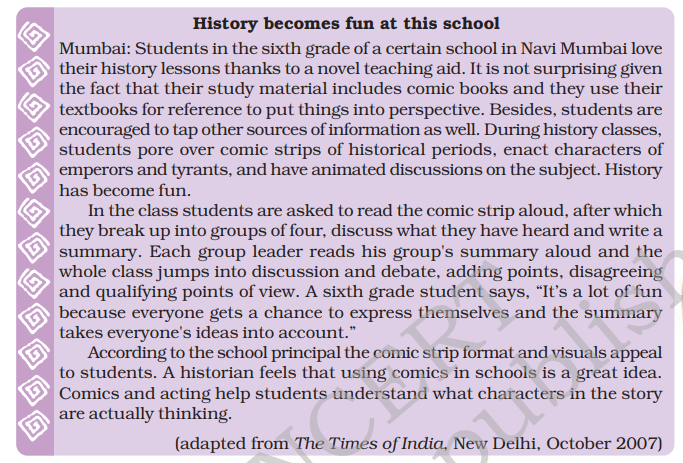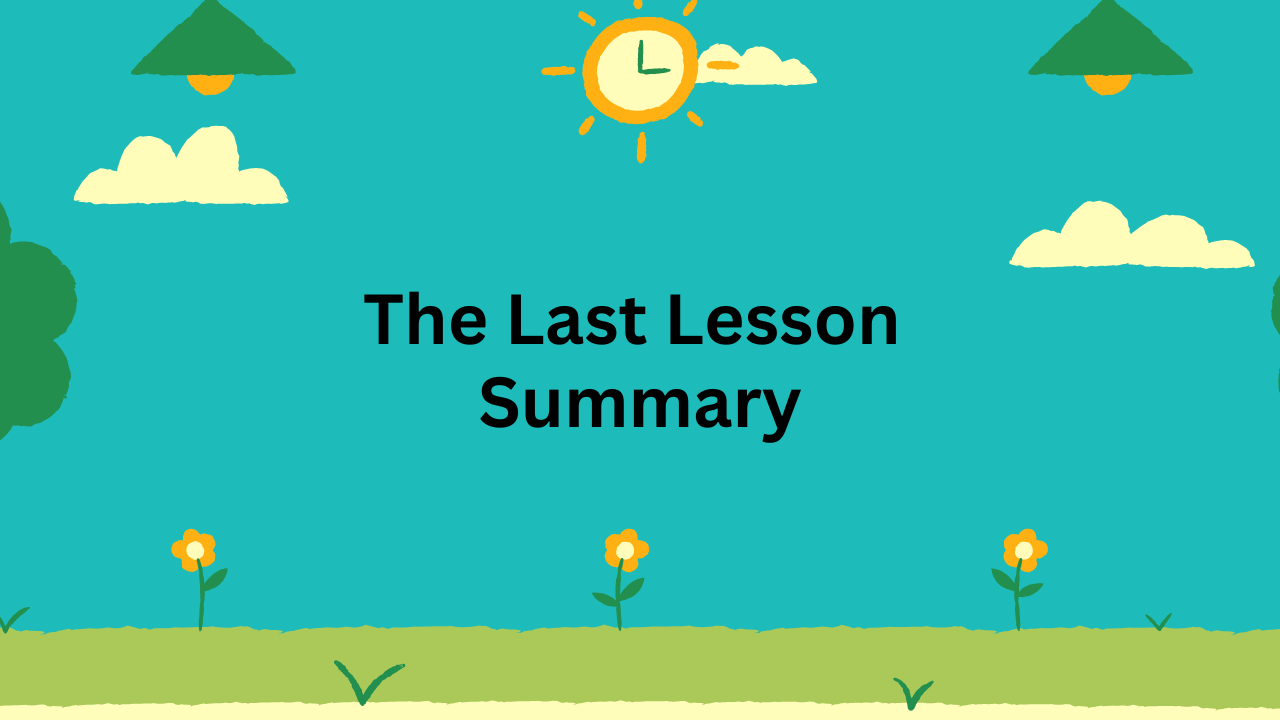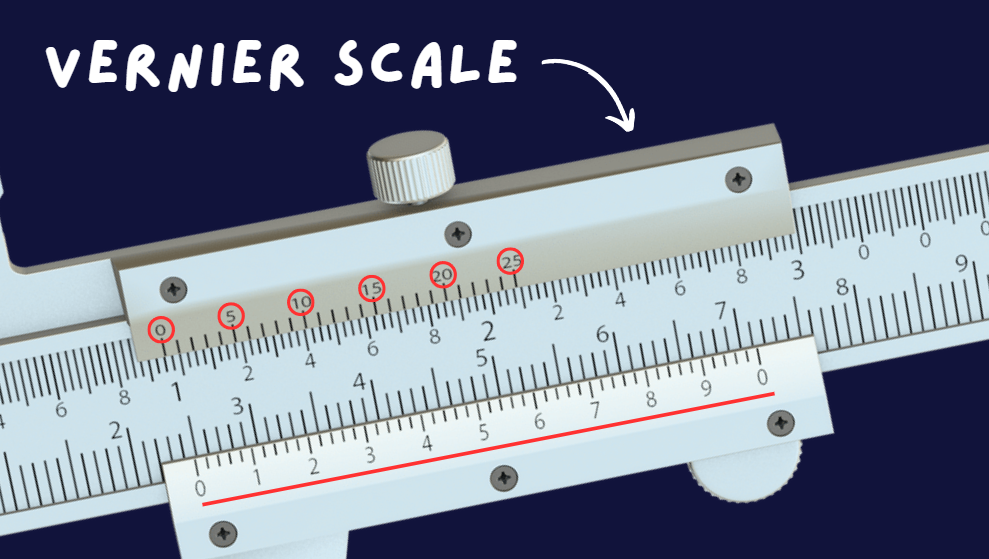NCERT Solutions Class 8 English Honeydew Chapter 3 Glimpses of the Past

Etutor Guru
21 Aug 2023
Comprehension check:-
Q 1. Look at picture 1 and recall the opening lines of the original song in Hindi, Who is the singer? Who else do you see in this picture?
Ans. “Aye mere vatan ke logon, tum khub laga lo nara,” are the first words of the song’s original Hindi translation. The singer is Lata Mangeshkar. In the photo are Pandit Jawahar Lal Nehru, Indira Gandhi, and Lal Bhadur Shastri.
Q 2. In picture 2 what do you understand by the Company’s “superior weapons”?
Ans. All of the Company’s tricks, strengths, and new regulations are considered its “superior weapons.”
Q 3. Who is an artisan? Why do you think the artisans suffered? (picture 3)
Ans. An artisan is an expert craftsperson. The skilled artisans’ businesses were destroyed by British policies.
Q 4. Which picture, according to you, reveals the first sparks of the fire of revolt?
Ans. The image of “The Company’s Conquest” depicts the beginnings of the revolt.
Working with the text:-
Answer the following questions.
Q 1. Do you think the Indian princes were short-sighted in their approach to the events of 1757?
Ans. Yes, the Indian princesses had a limited perspective on the events of 1757. They clashed with one another. To defeat their rivals, they enlisted the aid of British merchants.
Q 2. How did the East India Company subdue the Indian princes?
Ans. The Indian princesses were easily subdued by the East India Company one by one. They supported one king in his conflict with another. The business either killed them or removed them from power when they both grew weak.
Q 3. Quote the words used by Ram Mohan Roy to say that every religion teaches the same principles.
Ans. According to Ram Mohan Roy, cows come in a variety of colours, but the colour of their milk is always the same. Although different religious leaders hold different views, all religions share a common core.
Q 4. In what ways did the British officers exploit Indians?
Ans. Indian farmers, they levied high taxes. They lowered the import taxes on products made in England and brought them into India. Compared to their British counterparts, they paid the Indians very little in the way of salaries.
Q 5. Name these people.
(i) The ruler who fought pitched battles against the British and died fighting.
(ii) The person who wanted to reform the society.
(iii) The person who recommended the introduction of English education in India.
(iv) Two popular leaders who led the revolt (Choices may vary.)
Ans. (i) Tipu Sultan
(ii) Ram Mohan Roy
(iii) Lord Macaulay
(iv) Nana Saheb and Kunwar Singh
Q 6. Mention the following.
(i) Two examples of social practices prevailed then.
(ii) Two oppressive policies of the British.
(iii) Two ways in which common people suffered.
(iv) Four reasons for the discontent that led to the 1857 War of Independence.
Ans. (i) Untouchability, child marriage
(ii) the imposition of high taxes on farmers in order to imprison Indians without a court trial.
(iii) Famines killed fifteen lakh people between 1822 and 1836 as a result of the company’s bad policies.
(iv) The British government’s repressive policies destroyed the artisans.
Compared to their British counterparts, Indian soldiers receive pitiful pay and slow promotion.
The Indians were asked to cross the sea by the British, who
The Indian soldiers were incensed by the use of grease made from pig and cow fat on the bullets.
Many countries had been annexed by the British.
Working with language
In comics what the characters speak is put in bubbles. This is direct narration. When we report what the characters speak, we use the method of indirect narration.
Study these examples.
First farmer. Why are your men taking away the entire crop?
Second farmer: Your men have taken away everything.
Officer: You are still in arrears. If you don’t pay tax next week, I’ll send you to jail.
- The first farmer asked the officer why his men were taking away the entire crop.
- The second farmer said that their men had taken away everything.
- The officer replied that they were still in arrears and warned them that if they did not pay tax the following week, he (the officer) would send them (the farmers) to jail.
1 . Change the following sentences into indirect speech.
(First man: We must educate our brothers.
Second man: And try to improve their material conditions.
Third man: For that, we must convey our grievances to the British Parliament.
The first man said that _________________________
___________________________________________
The second man added that _____________________
____________________________________________
The third man suggested that ___________________
____________________________________________
(ii) First soldier: The white soldier gets huge pay, mansions and servants.
Second soldier: We get a pittance and slow promotions.
Third soldier: Who are the British to abolish our customs?
The first soldier said that ___________________________
______________________________________________
The second soldier remarked that ____________________
______________________________________________
The third soldier asked ____________________________
_____________________________________________
Ans. (i) The first man said that they must educate their brothers.
The second man added that they must try to improve their material condition.
The third man suggested that they must convey their grievances to the British Parliament.
(ii) The first soldier said that the white soldiers got huge pay, mansions and servants.
The second soldier remarked that they got a pittance and slow promotions.
The third soldier asked who the British were to abolish their customs.
Speaking and writing:-
1 . Playact the role of farmers who have grievances against the policies of the government. Rewrite their ‘speech bubbles’ in dialogue form first.
Ans. First Farmer:- The Angrej has taken away all my crops.
Second Farmer:- The Angrej had put my brother in jail for not paying taxes.
Third Farmer:- There has been a famine for two years. How can we pay so heavy taxes?
Farmer Leader:- Unite yourselves. Revolt against their policies. Join the revolutionaries.
(ii) Write the story in your own words. Give it a title.
Ans. The Fox and the Goat
One day, a fox unintentionally fell into a well. She made valiant attempts to exit the well, but in vain. A goat eventually arrived there. In the well, she observed the fox. What are you doing in the well, she questioned the fox. I’m relishing the taste of sweet water, the fox declared. Let me taste it, the goat said. The goat was requested by the fox to dive into the well. The stupid goat dived headfirst into the well. The fox jumped out of the well while riding a goat. The stupid goat was abandoned by himself in the well. She discovered that she had been deceived.
Moral:- Look before you leap.
3. Read the following news item.

Based on this news item, write a paragraph on what you think about this new method of teaching history.
Ans. Most people find history to be a dull subject. Due to its extensive and subjective topics, this subject deters many students. They must cram in dates and information. However, it would be very interesting to adopt this approach to teaching history. Because they like reading comic books, it will pique the student’s interest in the topic. The humorous way in which history is presented will leave students with a lasting memory of the facts.

